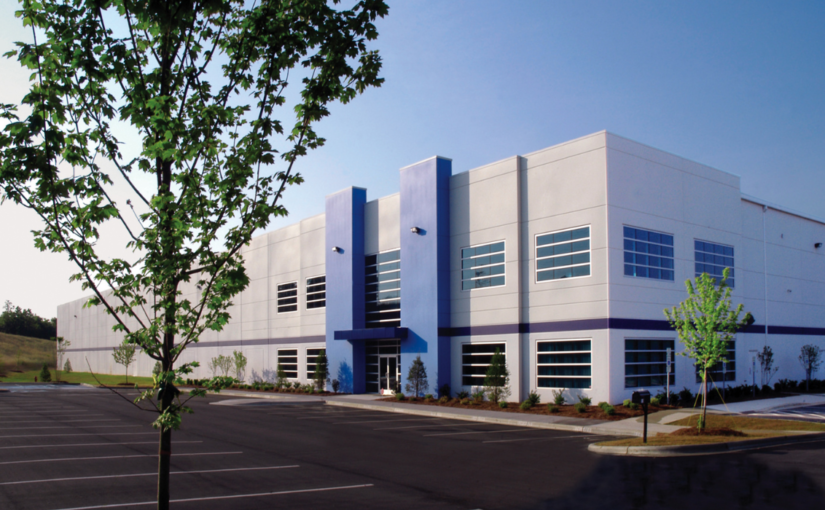back
The Role of Sustainability in Industrial Property Development
02-2023

Sustainability is a factor that is becoming more and more significant across all industries, and industrial property development is no exception. An essential part of our economy is industrial property development, which is in charge of building and overseeing the infrastructure needed for businesses to function. Sustainability must be taken into account when developing industrial property as people become more aware of the effects of climate change.
Sustainability in Industrial Property Development: Benefits
The development of industrial real estate can benefit greatly from sustainability. These consist of:
- Cost Savings: Over time, sustainable development may result in substantial cost savings. For instance, installing insulation, HVAC systems, and energy-efficient lighting can lower energy costs, and water-saving technologies can lower water usage and associated costs.
- Enhanced Public Perception: Many customers and companies want to work with organizations that place a high priority on sustainability. Industrial property developers can enhance their public perception and reputation by demonstrating a commitment to sustainability, which will increase demand for their properties.
- Compliance with Regulations: For sustainable development, numerous governments have put rules and guidelines into place. Developers of industrial real estate who place a priority on sustainability can make sure that their buildings abide by these rules and prevent possible fines or penalties.
- Increased Property Value: Because sustainable structures are in high demand and can fetch high prices, sustainable development can raise property values.
- Positive Environmental Impact: Sustainable development can aid in reducing the environmental effects of industrial activities. This entails cutting back on waste generation, protecting natural habitats, and lowering greenhouse gas emissions.
Sustainability Challenges in Industrial Property Development
- Even though the advantages of sustainable development are obvious, incorporating sustainable practices into the development of industrial property is not without its difficulties. These consist of:
- High Initial Costs: Sustainable development frequently entails high Initial Costs. For some industrial property developers, putting in place green building practices or installing renewable energy systems might require a sizable investment.
- Limited Awareness and Knowledge: Not all commercial real estate developers possess the skills and sensibilities required to implement sustainable practices successfully. This may result in less-than-ideal solutions that fail to produce the desired results.
- Long Payback Periods: Implementing renewable energy systems is an example of a sustainable development initiative that may have a long payback period, meaning that it may take several years to recover the initial investment.
- Developers of industrial real estate might be resistant to change, especially if they have been employing conventional construction techniques for a long time. This can make it difficult to implement sustainable practices, which may require a significant shift in mindset and approach.
Sustainable Industrial Property Development Best Practices
It is crucial to adhere to best practices in industrial property development in order to successfully implement sustainable practices. Among the top methods for developing industrial property sustainably are:
- Conduct a Sustainability Assessment: To find opportunities for sustainable practices, conduct a sustainability assessment prior to starting any development project. Energy use, water use, waste management, and transportation should all be taken into account in this evaluation.
- Make use of green building techniques: When planning and building a building, make use of green building techniques like energy-efficient insulation, lighting, and plumbing fixtures. These procedures can lessen waste production and consumption of water and energy.
- Incorporate Renewable Energy: When designing industrial properties, take into account the use of renewable energy sources like solar or wind power. Energy costs and greenhouse gas emissions may be decreased with the aid of these systems.
- Reduce Water Use: Use drought-tolerant landscaping and water-saving technologies like low-flow plumbing fixtures and rainwater harvesting systems. These procedures can lower water usage and cut costs associated with water use.
- Manage Waste: Put in place a thorough waste management system that incorporates composting, recycling, and safe disposal of hazardous materials. This may lessen waste generation and adverse environmental effects.
- Prioritize Location: Pick sites for industrial properties that are convenient for biking, walking, or public transportation. This can encourage environmentally friendly transportation methods and help employees and visitors leave less of a carbon footprint.
- Engage Stakeholders: Include all interested parties, including workers, tenants, investors, and local communities, in the process of sustainable development. Having everyone committed to achieving sustainability goals can help increase support for sustainable practices.
In all sectors of the economy, including industrial property development, sustainability is gaining importance. Numerous advantages can result from sustainable development, including financial savings, enhanced public perception, adherence to rules, increased property value, and a favorable effect on the environment. Implementing sustainable practices is not without its difficulties, though, including high upfront costs, a lack of awareness and knowledge, lengthy payback times, and resistance to change. It is crucial to adhere to best practices, such as carrying out a sustainability assessment, using green building techniques, incorporating renewable energy, minimizing water use, managing waste, prioritizing location, and involving stakeholders, in order to successfully implement sustainable practices in industrial property development. Industrial property developers can create sustainable properties that are good for the environment and their bottom line by adhering to these best practices.
F2H Capital Group is a debt advisory firm specializing in negotiating the best terms for your commercial real estate projects. The company offers a range of financial products and services, including fixed loans, bridge loans, and construction loans across all asset types. Please contact us for any of your financing needs.

